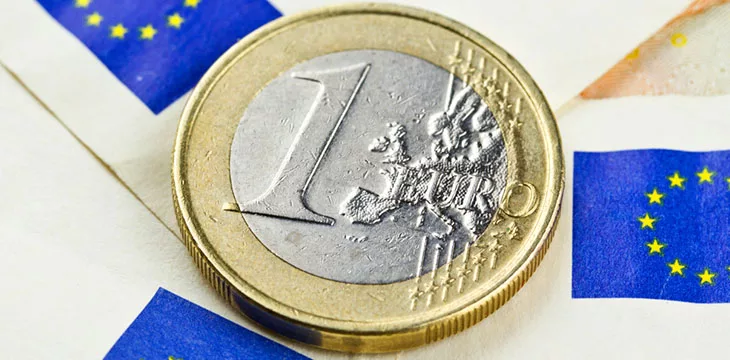|
Getting your Trinity Audio player ready...
|
The European Central Bank (ECB) aims to make the digital euro initially available to Euro Area residents, merchants, and governments before branching out to other countries in the Euro Economic Area. ECB further expects European legislators to launch a regulatory framework that will set the stage for the launch of the digital currency, the bank’s latest report revealed.
Published this week, the report delves into the Eurosystem’s views on the central bank digital currency’s (CBDC) access, onboarding, holding, and distribution. This report, the third in a series from the ECB, presents an alternate set of design and distribution options endorsed by the governing council of the regional central bank.
Today we have also published our third progress report on the digital euro, as well as the findings of a study on people’s views on specific features of a potential digital wallet.
Find out more https://t.co/gDoFXYvVTM
— European Central Bank (@ecb) April 24, 2023
ECB will prioritize Euro Area residents and merchants first. Non-resident Euro Area citizens will also have access, but only if they hold an account with a Euro Area payment service provider (PSP).
Distribution of the digital euro has sparked heated debates, with banks expressing concern that a direct ECB-consumer relationship could drive them out of business. In the latest report, the ECB proposes distributing the central bank digital currency through PSPs. End users can access the currency through existing apps and online banking platforms.
Eurosystem, the region’s monetary authority, could also provide an app for the end users.
For the PSPs, offering basic services would be mandatory if they intend to be allowed to distribute the digital euro. However, they can opt to provide extra services such as recurring payments.
The report also gave room for conditional payments, which ECB defines as “payments that are instructed automatically when pre-defined conditions are met.”
ECB has been adamant that the digital euro won’t be programmable money, one of the major promises of CBDCs. Being programmable would limit the digital euro to payments for specified goods and services, the antithesis of the fungible nature of the euro.
Alongside the report, ECB published the findings of a commissioned study that collected sentiment toward the digital euro. The study found that most people are interested in trying out the CBDC, with P2P transfers being the feature most users demanded.
Offline functionality also ranked highly, but the digital euro doesn’t support the feature in its current form.
“We value the views and needs of our fellow Europeans very highly. We listen to them. The digital euro project is for the people of Europe,” commented Fabio Panetta, an ECB board member.
In an appearance before the European Parliament, Panetta further acknowledged that while the ECB is hard at work on the CBDC, the final authority lies with lawmakers.
“There should be a political decision to issue [a digital euro], and then the central bank should be ready to respond. If that call (not to go ahead) is done at the political level, I cannot see any chance of the ECB deciding autonomously or independently to progress,” Panetta commented.
To learn more about central bank digital currencies and some of the design decisions that need to be considered when creating and launching it, read nChain’s CBDC playbook.
Watch: Eswar Prasad on the future of money through blockchain and digital currencies

 03-04-2026
03-04-2026 




